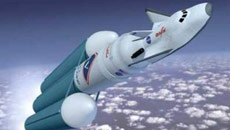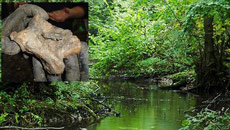In what could solve the commercial problems associated with clean-up of nuclear waste, researchers have successfully tested a material that can extract atoms of rare or dangerous elements such as radon from the air.
Researchers have used an 'organic cage molecule' called CC3 to separate krypton, radon and xenon from air at concentrations of only a few parts per million.
"This material could solve commercial problems associated with the extraction of rare gases or other molecules from very dilute mixtures. The key is to design exactly the right fit between the cavity and the molecule that you want to capture," said professor Andy Cooper from University of Liverpool in Britain.
The CC3, which was developed in Liverpool, is a molecule that is made up of cavities, or cages, into which gas molecules such as xenon and radon fit very precisely.
By a process of adsorption - where molecules or atoms stick onto the surface - the right gas molecules are held in place, while others such as water or nitrogen are released.
Tests using columns packed with CC3 crystals have produced results far superior than the current best materials and this raises the possibility that CC3 could be used for commercial processes, for example in the clean-up of nuclear waste or in the adsorption and detection of radon gas in homes.
Gases such as radon, xenon and krypton all occur naturally in the air but in minute quantities - typically less than one part per million. As a result they are expensive to extract for use in industries such as lighting or medicine and, in case of radon, the gas can accumulate in buildings.
Previous methods for extracting these elements have involved cryogenic technology, which is energy intensive and expensive.
The study appeared in the journal Nature Materials.





